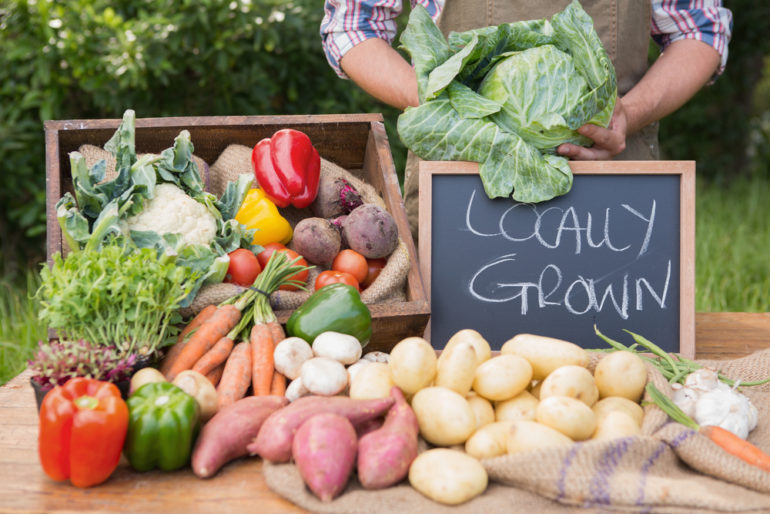Know what you are eating but most importantly know where your food comes from.
Grapes from South Africa.
Blueberries from Morocco.
Pineapple from Costa Rica.
Bananas from Ecuador.
Lamb from New Zealand.
Beef from the USA.
Not only are we talking a lot of air miles and environmental repercussions, we also cannot know how the product was sourced, treated and stored.
The world today is truly global: food flies in from everywhere to anywhere
We are an on demand population but slowly we see the need to treat our world and our bodies with more care.
Take the world’s resources of honey for example. They are critically low. The bee population is dying and demand for the product is high. As a result honey is being blended with poorer, more manufactured products like rice syrup to make it go farther. (1)
Or a shocking report this week that two thirds of meat production factories in the UK had unacceptable levels of food hygiene, drastically breaching safety rules and leading to the halt of production. Mass animal farming is big business which is jeopardising our health. (2)
Do we need another meat scandal?
It’s easy to say “Go to the farmer’s market, then the butcher, then the bakery to buy the best local ingredients, and get to know your suppliers”, but most of us don’t have the luxury of time and money. I understand that. Furthermore eating with fewer market choices requires more creativity.
Eating locally, seasonally & more conscientiously is the only way forward
My tip is use great suppliers who can deliver to your door, lightening the burden on your busy schedule:
Farmy for a range of ingredients
Freshbox for veggies and fruit
Mahler und Co for super foods and smoothie boxes
Fidelio for 100% organic meats
Naturkostbar for nut butters and superfoods
Also look for organic farms and suppliers in your area with BIO Suisse.
Each little change we individually make not only benefits us but the food chain and environment too.
(1) The main reasons for global bee decline include agricultural pesticides, parasites/pathogens, and climate change.
(2) Meat Scandal, The Guardian
Stay connected and don’t miss out on unique Experiences & Discoveries.
Sign up now!









